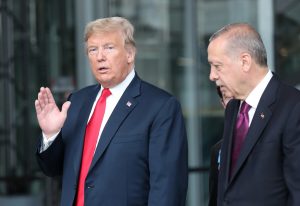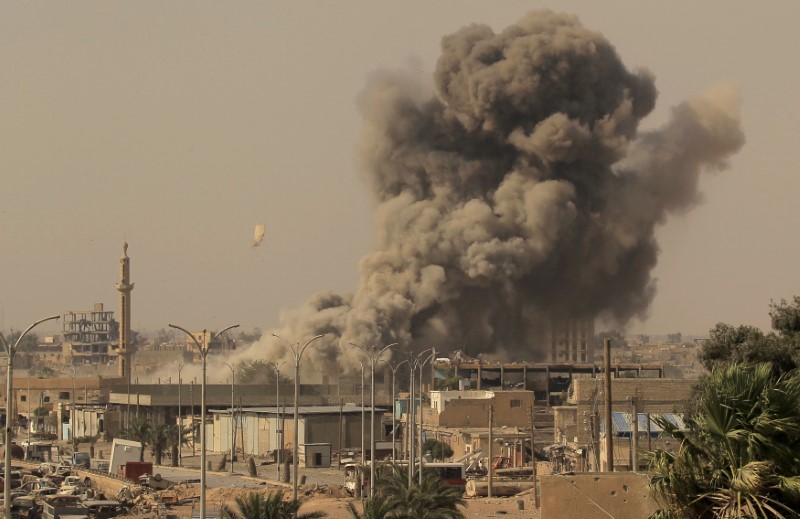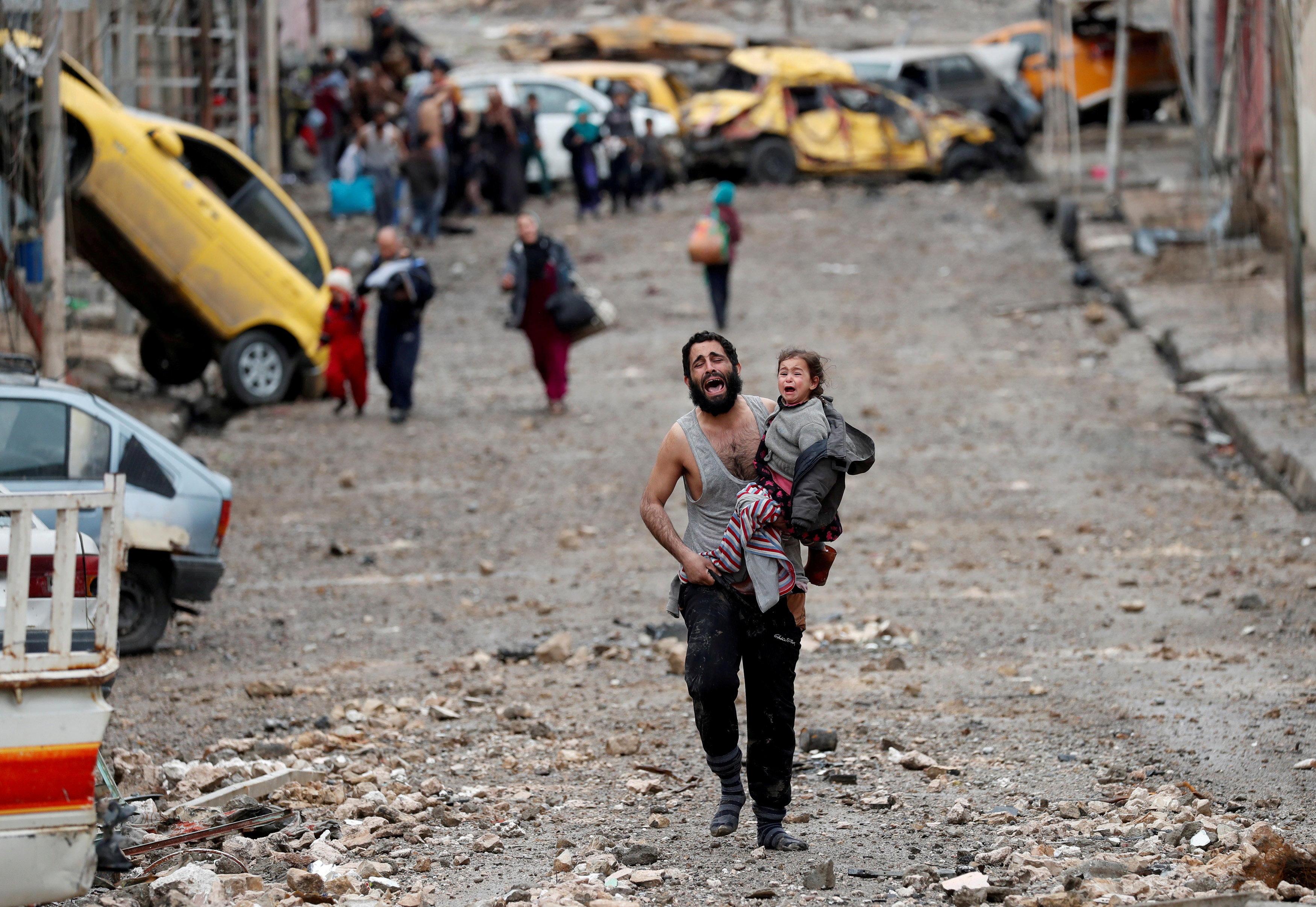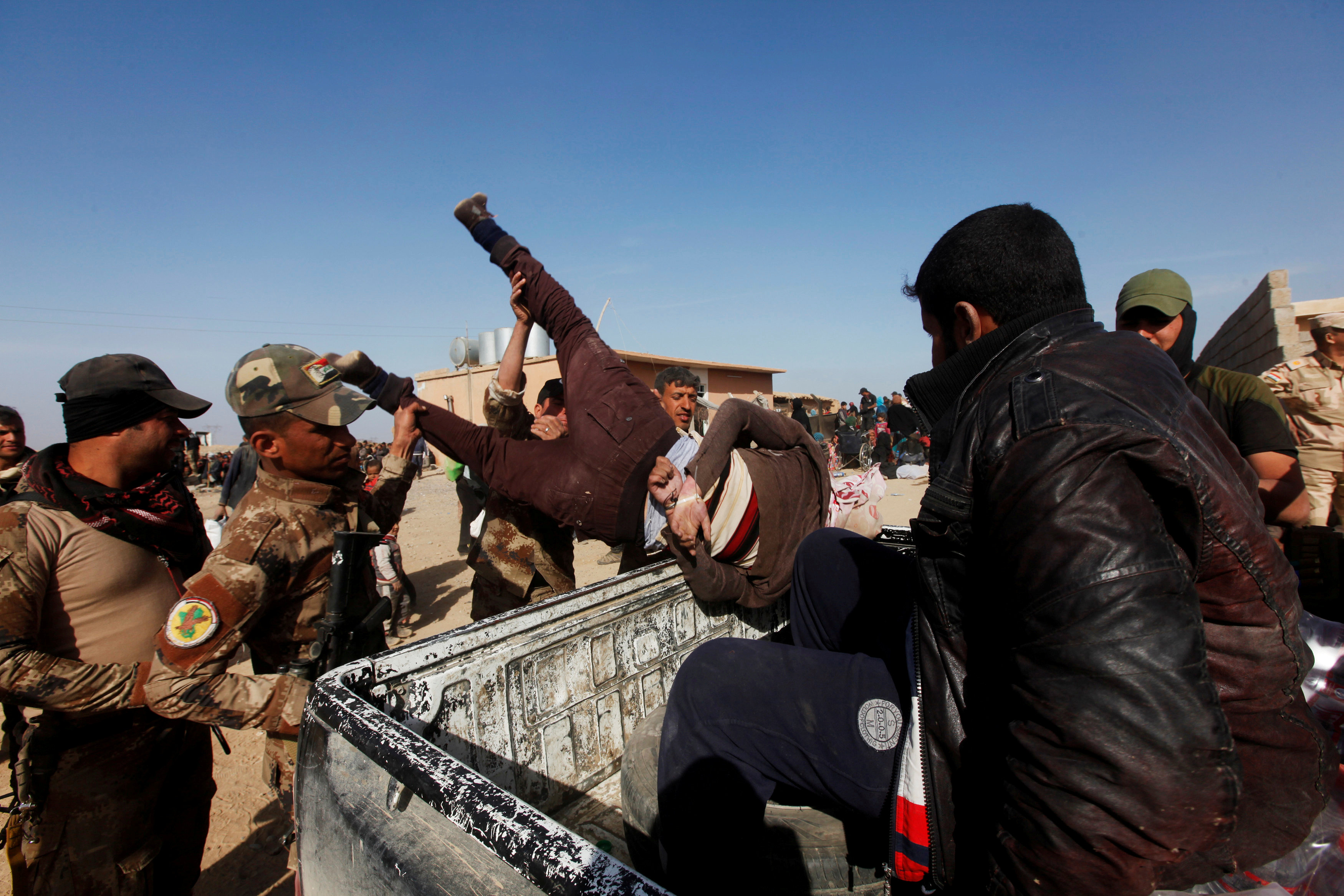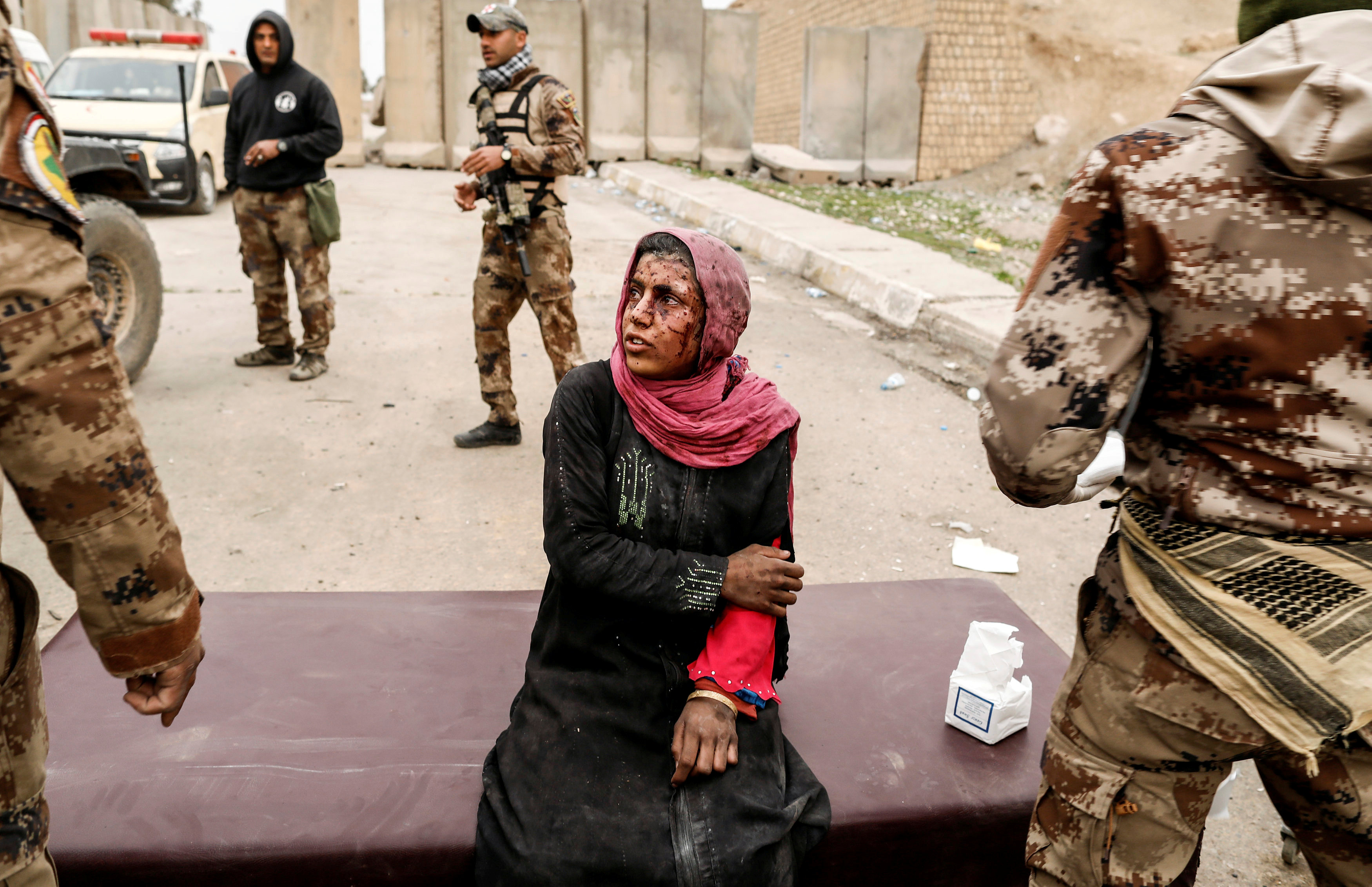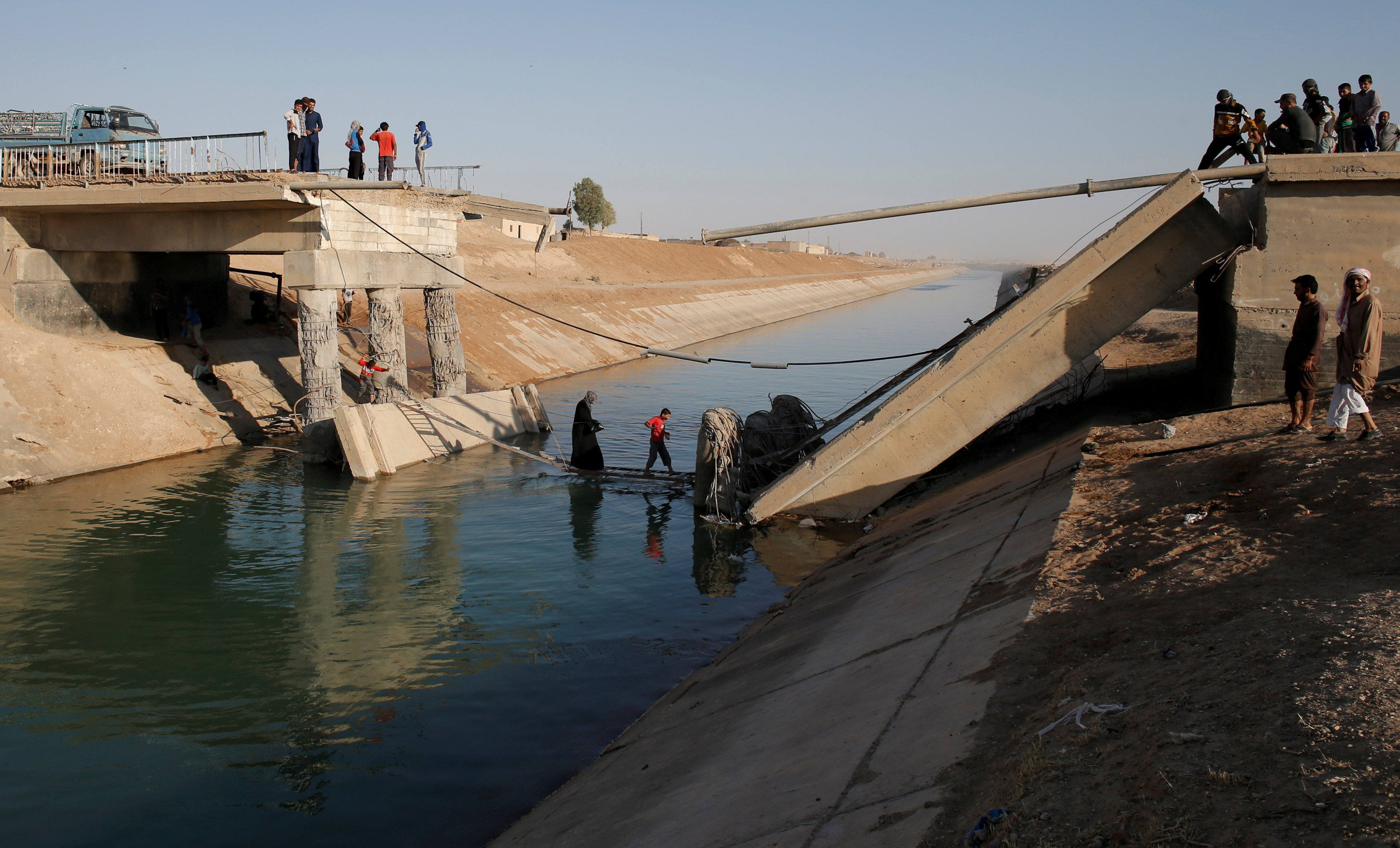
By Rodi Said and Phil Stewart
QAMISHLI, Syria/WASHINGTON (Reuters) – The U.S.-led coalition battling Islamic State added to confusion surrounding the U.S. withdrawal from Syria on Friday by declaring that it had started the pullout process but U.S. officials later clarified that only equipment, not troops, had exited the country.
U.S. President Donald Trump’s announcement last month that he had decided to withdraw the 2,000 U.S. troops there stunned allies who have joined Washington in the battle against Islamic State militants in Syria. Senior U.S. officials were shocked too, among them Defense Secretary Jim Mattis, who quit in protest.
U.S. Colonel Sean Ryan, a coalition spokesman, said the coalition “has begun the process of our deliberate withdrawal from Syria.”
“Out of concern for operational security, we will not discuss specific timelines, locations or troop movements,” Ryan said.
After media reports suggesting the departure of U.S. forces had begun, U.S. officials told Reuters that no troops had yet withdrawn and stressed that the battle against Islamic State was continuing as U.S.-backed forces try to capture the group’s last remaining pockets of territory in Syria. The three U.S. officials spoke on condition of anonymity due to the sensitivity of the issue.
But the U.S. officials confirmed that equipment was being moved out of Syria, a sign that despite mixed messages from Washington preparations for a withdrawal of troops was proceeding apace.
Residents near border crossings that are typically used by U.S. forces going in and out of Syria from Iraq said they had seen no obvious or large-scale movement of U.S. ground forces on Friday.
SYRIA UPHEAVAL
The U.S. decision has injected new uncertainties into the eight-year-long Syrian war and spurred a flurry of contacts over how a resulting security vacuum will be filled across a swathe of northern and eastern Syria where the U.S. forces are stationed.
On the one hand, Turkey aims to pursue a campaign against Kurdish forces that have allied with the United States, and on the other the Russia- and Iran-backed Syrian government sees the chance to recover a huge chunk of territory.
U.S. National Security Adviser John Bolton suggested on Tuesday that protecting Washington’s Kurdish allies would be a precondition of the U.S. withdrawal. That drew a rebuke from Turkish President Tayyip Erdogan who called his comments “a serious mistake”.
U.S. Secretary of State Mike Pompeo, who has been touring the Middle East this week to reassure allies of Washington’s commitment to regional security, said on Thursday the withdrawal would not be scuppered despite the Turkish threats.
The Kurdish groups that control the north have turned to Moscow and Damascus in the hope of striking a political deal that will stave off Turkey and shield their autonomy in the north.
Russia, which has deployed forces into Syria in support of the Damascus government, said it had the impression that the United States wanted to stay despite the announced withdrawal of U.S. troops, RIA news agency reported.
RUSSIA URGES DAMASCUS-KURDISH DIALOGUE
Maria Zakharova, a Russian Foreign Ministry spokeswoman, said it was important for Syrian Kurds and the Syrian government to start talking to each other in light of the U.S. withdrawal plans.
She also said the territory previously controlled by the United States should be transferred to the Syrian government.
“In this regard, establishing dialogue between the Kurds and Damascus takes on particular significance. After all, the Kurds are an integral part of Syrian society,” Zakharova said.
Turkey views the U.S.-backed YPG Syrian Kurdish militia as an extension of the Kurdistan Workers’ Party (PKK), which has waged a 34-year insurgency in Turkey for Kurdish political and cultural rights, mostly in southeastern areas near Syria.
A Kurdish politician told Reuters last week the Kurds had presented Moscow with a road-map for a deal with Damascus. Syria’s deputy foreign minister said on Wednesday he was optimistic about renewed dialogue with the Kurds.
Foreign Minister Jean-Yves Le Drian of France, which is part of the U.S.-led coalition, welcomed what he believed was a slower withdrawal by the United States after pressure from its allies.
“President Macron spoke to him (Trump) several times and it seems that there has been a change that I think is positive,” he said in a television interview on Thursday.
In a rare acknowledgment that French troops were also in Syria, he said they would leave when there is a political solution in the country.
(Reporting by Tom Perry in Beirut, John Irish in Paris, Andrey Ostroukh in Moscow and Phil Stewart in Washington; Writing by Tom Perry and Phil Stewart; Editing by Angus MacSwan and James Dalgleish)

